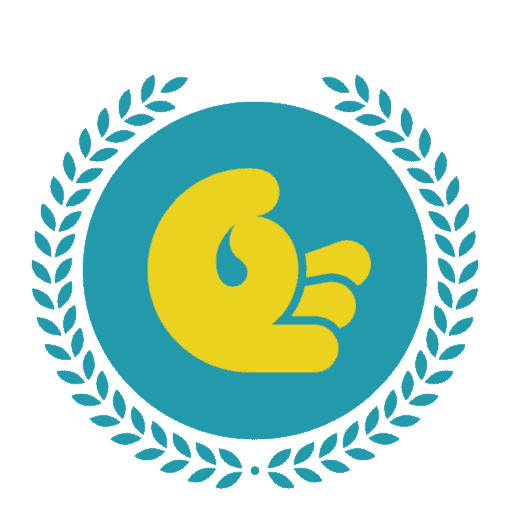
A whistleblower is an individual who brings attention to wrongdoing or corruption within an organisation. They are often employees or insiders who have knowledge of illegal or unethical activities and speak out about them to expose the truth.
Whistleblowers are vital in bringing attention to important issues and holding organisations accountable for their actions. They are often the only source of information about wrongdoing and corruption, and their willingness to speak out can have far-reaching consequences. Without whistleblowers, many instances of misconduct and crime would go unreported and unchecked, leading to a lack of accountability and transparency.
Finally, protecting whistleblowers is a matter of justice and fairness. Whistleblowers often face significant risks and consequences when speaking out, so it is crucial to ensure they can do so without fear of reprisal. In addition, by protecting whistleblowers, we can encourage more individuals to come forward and speak out about important issues, which is essential for creating a more just and equitable society.
There have been countless examples of whistleblowers who have brought attention to important issues and exposed corruption and wrongdoing. For example, Daniel Ellsberg’s release of the Pentagon Papers in 1971 helped reveal the government’s lies about the Vietnam War and sparked a national conversation about the conflict. More recently, Edward Snowden’s leak of classified information about the National Security Agency’s surveillance programs sparked a global debate about privacy and government transparency.
In each of these cases, the actions of the whistleblowers had a profound impact on society. They helped shed light on important issues and sparked meaningful discussions and debates. They also held organisations accountable for their actions and contributed to creating a more transparent and responsible society.
Overall, the role of whistleblowers in exposing corruption and wrongdoing is crucial. They are an essential part of a functioning democracy and deserve our admiration and support.

Examples of whistleblowers
- Jeffrey Wigand: A former tobacco executive who blew the whistle on the tobacco industry’s deceptive marketing practices, including the industry’s efforts to conceal the dangers of smoking. His disclosures were featured in the film “The Insider.“
- Cynthia Cooper: A former employee of WorldCom who exposed accounting fraud at the company, leading to the largest corporate scandal in history at the time.
- Sherron Watkins: A former Enron executive who alerted management to accounting irregularities at the company, leading to one of the biggest corporate scandals in history. Her disclosures were featured in the film “The Smartest Guys in the Room.”
- Frank Serpico: A one-time New York City police officer who exposed widespread corruption within the department. His disclosures were featured in the film “Serpico.”
- Harry Markopolos: A financial analyst who exposed the Bernie Madoff Ponzi scheme and alerted authorities to the fraud. His disclosures led to Madoff’s arrest and conviction.
- Edward Snowden: In 2013, Snowden leaked classified information about the U.S. government’s mass surveillance programs to the media, revealing the extent to which the government collected information about its citizens.
- Bradley Birkenfeld: In 2007, Birkenfeld blew the whistle on the tax evasion practices of Swiss bank UBS, revealing that the bank was helping wealthy Americans evade taxes by hiding their assets in offshore accounts.
- Karen Silkwood: In the 1970s, Silkwood blew the whistle on safety violations at the nuclear facility where she worked, revealing that workers were exposed to dangerous radiation levels.
- William Sanjour: In the 1970s, Sanjour blew the whistle on the Environmental Protection Agency’s failure to enforce pollution laws, revealing that the agency was allowing companies to violate environmental regulations.
- Linda Tripp: In the 1990s, Tripp blew the whistle on President Bill Clinton’s affair with Monica Lewinsky, revealing that Clinton had lied about the affair under oath.
- Mark Felt: In the 1970s, Felt (aka “Deep Throat”) blew the whistle on the Watergate scandal, revealing that President Richard Nixon and his administration were involved in the break-in at the Democratic National Committee headquarters.
Despite the importance of whistleblowers in exposing corruption and wrongdoing, they often face significant challenges and risks when speaking out.
These challenges can include personal and professional consequences and can profoundly impact the lives of whistleblowers.
One of the most significant challenges whistleblowers face is the risk of reprisal and punishment. When individuals speak out about wrongdoing or corruption, they often face backlash from those exposed. These backlashes can include professional consequences, such as job loss or blacklisting, to physical threats and intimidation.
In addition to the risks of reprisal, whistleblowers also often face social and psychological consequences. For example, they may be ostracised by their colleagues and communities.
Speaking out can also be emotionally and psychologically taxing. Many whistleblowers report feeling overwhelmed and burnt out after the process, and some even struggle with feelings of isolation and anxiety. Overall, the challenges faced by whistleblowers are significant, and they highlight the bravery and sacrifice of these individuals. Despite the risks, whistleblowers continue to speak out and play a vital role in exposing corruption and wrongdoing.
Necessary strategies to support and protect whistleblowers
Several strategies can be used to support and protect whistleblowers. One of the most important is putting solid laws and policies that provide legal protections for whistleblowers. These laws can ensure that individuals can speak out about wrongdoing or corruption without fear of reprisal, and they can offer a legal framework for addressing reprisals when they occur. In addition to laws and policies, there are other ways that individuals can support and advocate for whistleblowers. These can include:
- Raising awareness publicly or on other platforms, such as social media, blogs, websites, etc., about the importance of whistleblowers and the need to protect them.
- Supporting organisations that work to protect and defend whistleblowers
- Donating time or resources to help support whistleblowers and their causes.
Individuals can play a vital role in supporting and protecting whistleblowers by taking these and other actions. By standing up for these brave individuals and advocating for their rights, we can create a more transparent and accountable society and ensure that individuals can speak out about important issues without fear of reprisal.
Conclusion
It is essential to recognise and honour the contributions of whistleblowers. These individuals play a vital role in promoting transparency and accountability, and they often face significant risks and consequences when they speak out about wrongdoing or corruption. By protecting and supporting whistleblowers, we can create a more transparent and accountable society and help ensure that individuals can speak out about important issues without fear of reprisal.
It is essential to take some steps to create a culture that values and protects those who speak out against wrongdoing. These can include:
- Putting in place solid laws and policies that protect whistleblowers.
- Supporting and advocating for whistleblowers and their causes.
- Educating the public about the relevance of whistleblowers and the need to protect them.
- Encourage a culture of transparency and accountability within organisations and society.
Taking these and other actions can create a culture that values and protects those who speak out against wrongdoing without fear of reprisal. These actions are essential for creating a more just and equitable society. Thank you for coming this far. You may also like our blog on Spirituality | The Search For Meaning And It’s Benefits

